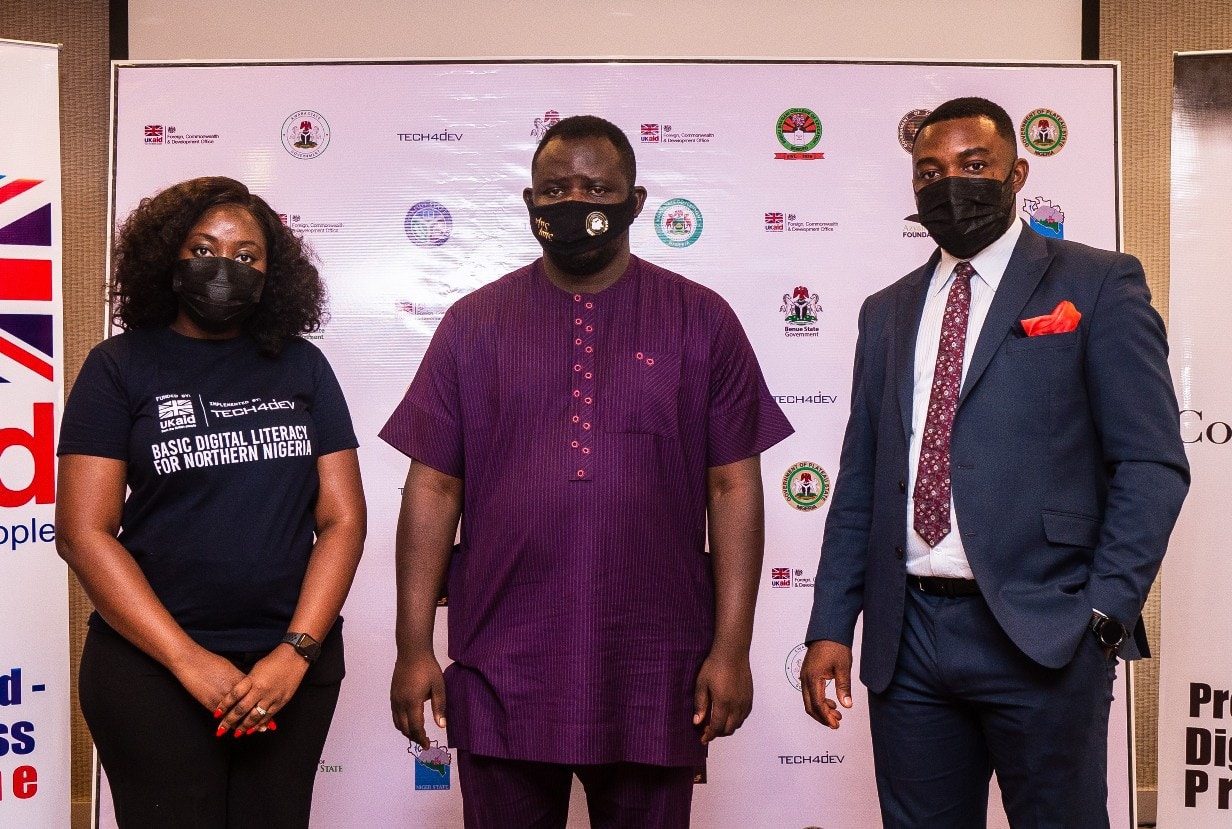…launches handbook and factsheet.
In a time of social distancing and government-enforced lockdowns to curtail the spread of COVID-19, digital technology has enabled the continuation of work, education, and communication. But for millions of people who are unable to use technology, being offline is economically and socially isolating. COVID-19 has further illuminated the ‘digital divide’, which is even more pronounced in Nigeria (worse in poor rural clusters of Northern Nigeria). Therefore, it has become pertinent, especially on this path to the new normal for the focus to be on digital literacy, to capacitate vulnerable populations to leverage technology for commerce, education, and communication to improve their socio-economic recovery and pandemic resilience and build a more prosperous future.
This and many more were the highlights of the Stakeholders’ Engagement Forum organised by Technology for Social Change and Development Initiative (Tech4Dev), a non-profit organization established to empower African communities with digital skills that will bridge the gap of unskilled labor needed for the future of work. This Forum served as part of activities to end weeks of training on the Basic Digital Literacy for Rural Clusters in Northern Nigeria. A project funded by the UK Foreign, Commonwealth & Development Office (FCDO), where a total of 1,338 beneficiaries were empowered with basic digital literacy; of which over 600 of these beneficiaries were girls/women and 400+ were Persons with Disabilities (PWDs), across 10 states in Northern Nigeria where this program took place namely; Zamfara, Kaduna, Kwara, Kogi, Benue, Sokoto, Jigawa, Nasarawa, Niger and Plateau states.

Engagement event that held at Transcorp Hilton Abuja on Thursday. Left to right Diwura Oladepo,
Executive Director, Tech4Dev; Jeffrey Udende, Senior Special Adviser to the Governor of Benue State on
ICT, Idongesit Udoh, The Head, UK Digital Access Programme and Country Adviser
In her opening remarks, The Head of Prosperity Fund Nigeria, Martha Bostock, was delighted on the progress of the program and the impact of changed lives the initiative was able to achieve, especially the focus being on vulnerable women and girls, Persons with Disabilities (PWDs) and other vulnerable groups. She said that “The UK Government is committed to supporting the advancement of the use of technology in Nigeria through various programs it is implementing with partners.” She also placed emphasis on how technology has created opportunities and leverage for vulnerable groups especially considering the effects of the COVID-19 pandemic.


